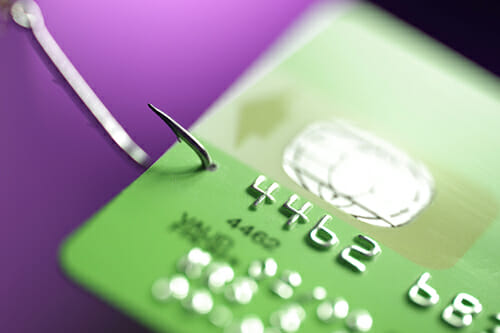 What is card cracking? It occurs when someone gives away their banking information to a third-party expecting a legitimate action to take place. For instance, you enter a contest or sign up for a promotion, but as part of the entry, your banking information is required. Who would willingly give away their banking information to someone they don’t know? Let’s look at three scenarios.
What is card cracking? It occurs when someone gives away their banking information to a third-party expecting a legitimate action to take place. For instance, you enter a contest or sign up for a promotion, but as part of the entry, your banking information is required. Who would willingly give away their banking information to someone they don’t know? Let’s look at three scenarios.
Card cracking scenario #1
A website or social media site offers a contest for a terrific prize. The contest could be for anything from a dream vacation to a celebrity’s new book to an iPhone. The options are endless. The only hitch is the winner must make a deposit or pay for shipping.
Card cracking scenario #2
A company is offering work-at-home opportunities and you’re chosen as one of the lucky candidates. The company needs to make payroll arrangements, which means they need a way to send you money.
Once you’ve given up your card number and PIN, your account can be drained at will by a third-party at their convenience.
If you make the mistake of turning over your banking information in scenario #1 or #2, it’s possible for the scammer to begin making withdrawals from your account. Once you’ve given up your card number and PIN, your account can be drained at will by a third-party at their convenience.
Card cracking scenario #3
The third card cracking scenario involves a little human trait called greed. Everyone wants a little extra cash, right? And, it just so happens you saw that post on social media in which some guy said you could get fast cash just by giving up access to your bank account. For each transaction the guy runs through your account, you get a piece of the action. Don’t laugh, this happens all the time, especially with students.
How scenario #3 works
The scam begins when you give your debit card number and PIN or password to the card cracker. Once the card cracker has access to an account, he starts making deposits—a lot of them. For each deposit, there will be a corresponding withdrawal made before the bank can verify funds. Think of it as a pyramid scheme in which money coming in covers money going out—until it all stops.
Eventually, the cycle will stop. When it does, the bank will turn to you for their losses…
When the crackers crumble
Eventually, the card cracking cycle will end. When it does, the bank will turn to you for their losses and it will be extremely hard to argue the transactions were unauthorized, i.e., you’re stuck. Also, the police are cracking down on card crackers, which means those who have cooperated could conceivably face criminal charges themselves along with the card crackers.
Until the card cracking cycle stops, the scammers hope the rewards they pay out are enough to keep the account holder quiet. Students are especially vulnerable to this type of scam. They might be inexperienced in financial matters, naive enough to believe their new social media friend, or could be desperate and see the risks as outweighing the rewards.
No matter what your situation, keep tight control over your debit and credit cards and never provide those numbers or the security codes unless you’re dealing with a legitimate entity.
This month’s companion post, Avoiding fake contests and promotions can be found in The Snitch, August edition.


Thanks for the info Terry. Much appreciated.
Youʻre welcome, Judy. I hope itʻs helpful!